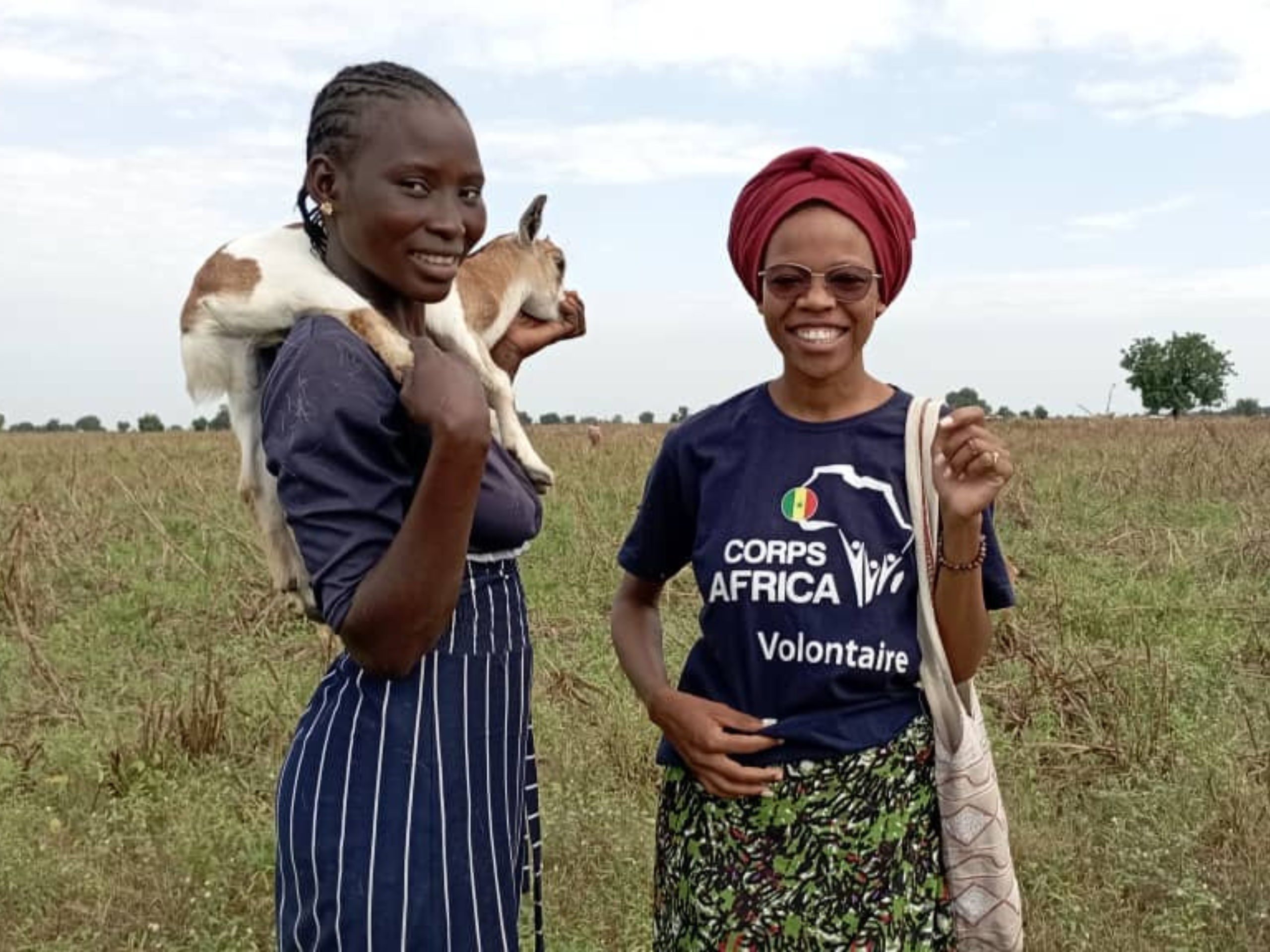Lately, I have learned something interesting that I am sure will be helpful to my leaders. Many people can relate that meeting new people and working with new communities can bring feelings of nervousness and sometimes excitement at the same time. It can be overwhelmingly exhausting to learn the new cultures of the community and adapt to everything- making oneself fit in. This was exactly how I felt the first month that I entered a new community as a CorpsAfrica/Senegal Volunteer. This was just fear of the unknown because honestly speaking, not everything I saw in this community was new. It was not strange that people found food from farming, I already knew that some families are big, and I was not surprised that people struggle to find basic needs and that neighbors share resources. However, there were some things that I did not know, things that I could not just guess. A good way to learn more about these people was more than just observing. I needed to get closer, interact, and, listen to their stories. Before I realized it, I found myself building relationships with people as individuals, families and the community at large.
Being open-minded, showing interest, and engaging with them every day made every dark room brighter. Those who were afraid of approaching me started enjoying visiting my host home just to greet me. Even those that I least expected to get along with started turning into friends. It is beautiful how we started having good moments together which gives me a sense of belonging. They invited me into their homes to chat. Sometimes I do not wait for an invitation. I have learned that it is important to intentionally be open to building good relationships in the community and not just think about what project to implement in communities. This means taking small steps to belong, simply going with them in the fields (farms), eating together, being curious about their culture, and even allowing them to teach you how to speak their language, how to cook, sweep, and do other chores. It is these interactions during and outside meetings that helped me realize the potential that this community has to develop itself. Through the built relationship, community members are open to talking about different ideas to solve some of the challenges that we both see in the community.
It has been two months living in this community and it no longer feels strange. In the time we have been interacting, we identified some activities that were successfully implemented. To begin with the Reusable Menstrual Pads (RUMPs) training among women and girls. This activity aimed to enable women and girls to live a dignified life through access to cost-effective and environmentally friendly reusable menstrual pads. Engaging in this activity in the community was an exciting and impactful experience. It not only provided a sustainable solution for women and girls to take control of their menstrual health but also allowed them to explore potential business opportunities.
Another activity that was interesting was a community cleaning day. This activity was identified by the community members themselves after noticing that the surroundings were untidy and unhygienic. Together we cleaned the surrounding community. As if this was not enough, the youth of the community made community benches using tires. They contributed some cash, bought cement and paint to make it more beautiful with Senegal flag colors. I was amazed by this gesture and everyone acknowledged that this activity was needed in the community and that it was necessary.
It is through this experience that I have learnt that It is easy to jump so quickly in thinking about prospective projects in rural communities while missing this beautiful side of building good relationships with community members. However, this has some implications because one is prone to making unjust decisions in identifying projects to solve problems. This is why community-led development calls us into immersion. This period of immersion gives one a chance to build a good relationship with the community hence being able to listen and understand the real issues that community members face in their lives and allow community members to lead projects and activities that may seem small but have a huge impact. It is important that we should slow down, build strong relationships with our communities, listen more and allow the communities to lead their own development. This is more impactful and ensures sustainability.

